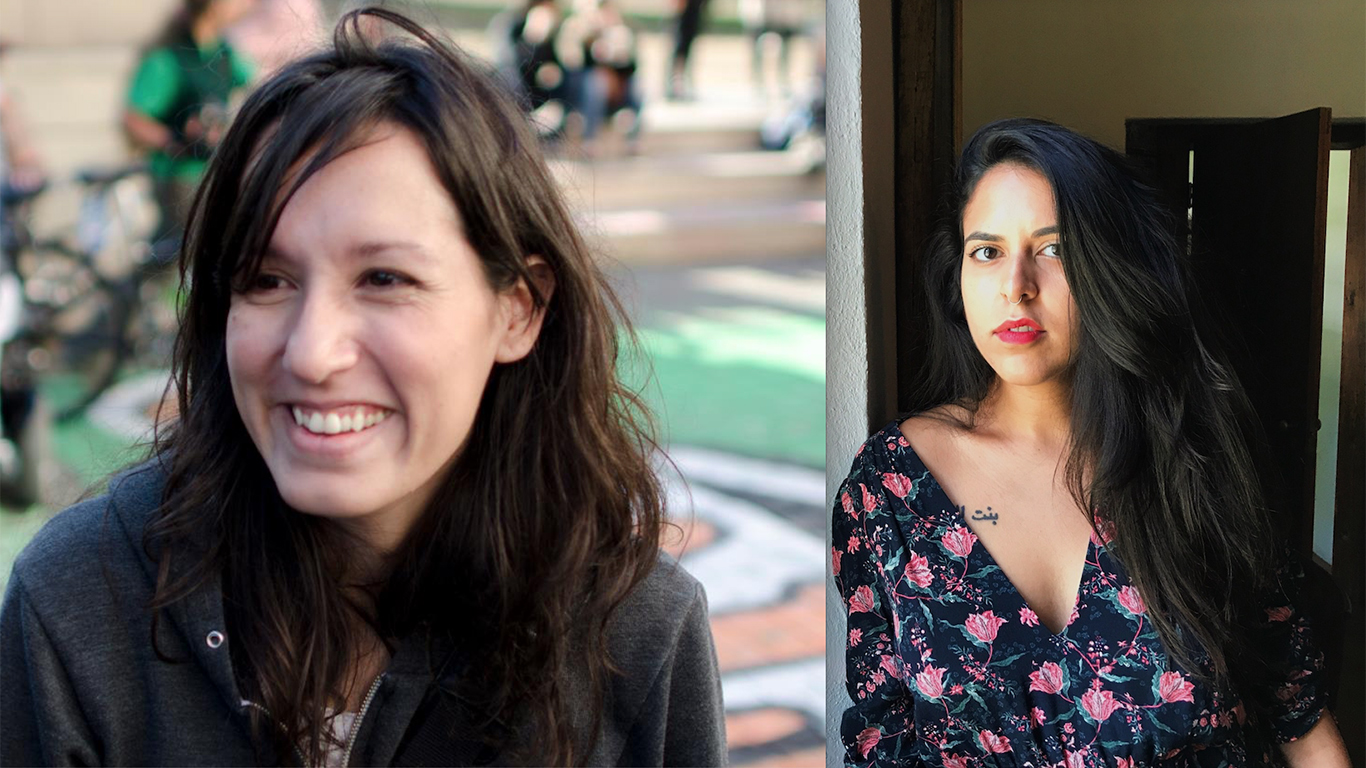
See the raw video at YouTube before the edited version is posted at Poetry Center Digital Archive
Under the heading “A border, like race, is a cruel fiction”—a line from a poem in Wendy Trevino’s remarkable book, Cruel Fiction—Trevino, The Poetry Center’s Mazza Writer in Residence for Fall 2020, will be joined, as part of her week-long residency, by Palestinian American poet Zaina Alsous, both poets reading and in conversation with one another and the audience. With emcee, alex cruse.
This remote access event starts promptly at 7:00 pm Pacific Time, and is free and open to the public. Real-Time Captioning provided on request (Media Captioning provided after the event); for reasonable accommodations please contact poetry@sfsu.edu.
Supported by the Sam Mazza Foundation. Co-sponsored by The Poetry Center and AMED: the Arab and Muslim Ethnicities and Diasporas Initiative at the College of Ethnic Studies, San Francisco State University, with our thanks to Professor Rabab Abdulhadi.
- Wendy Trevino’s Cruel Fiction (Commune Editions) tells the truth about life as we know and endure it, restlessly picking at the hangnails of both history and heartbreak. Trevino posits race as a “cruel fiction,” nationality as its attendant mythology. Trevino asks: How do we resist these fictions without reproducing their murderous, hierarchical logics? For Trevino, “poetry is not enough” as long as we are not enough. Trevino’s insurgent colloquialism is a sleight of hand. Cruel Fiction speaks plainly but never simply. Trevino reflects on the lies with which we arm ourselves to refute the lies used against us. Against the near-orgasmic collective delusions of Obamamania, Trevino recounts solidarities fostered during the Occupy movement. Exhilarating sonnet sequences titled “Popular Culture & Cruel Work,” and “Brazilian Is Not a Race” interrogate the inter-sections of pop and protest.
—Momtaza Mehri, Somali-British poet, Young People’s Laureate for London 2018-19
Wendy Trevino was born and raised in the Rio Grande Valley of South Texas. She now lives and works in San Francisco. Her chapbook 128–131 was published by Perfect Lovers Press in 2013. Her chapbook Brazilian Is Not a Racewas published by Commune Editions in 2016, followed by her first full-length book, Cruel Fiction, also from Commune Editions, 2018. Her chapbook #YourHarveyWeinstein was also published by Spoilsport Editions—an online press she started with writer Oki Sogumi—in 2017. Her poems have appeared in various print and online journals, including Abraham Lincoln, Armed Cell, the Capilano Review, LIES, Macaroni Necklace, Mondo Bummer, ELDERLY, and Open House. Wendy is not an experimental writer.
Zaina Alsous is a prison abolitionist, a daughter of the Palestinian diaspora, and a movement worker in South Florida. Her poetry, reviews, and essays have been published in POETRY Magazine, The Kenyon Review, The New Inquiry, Adroit, and elsewhere. She edits for Scalawag Magazine, a publication dedicated to unsettling dominant narratives of the U.S. South. Her chapbook Lemon Effigies won the Rick Campbell Chapbook Prize and was published by Anhinga Press. Her first full-length collection of poetry, A Theory of Birds, won the Etel Adnan Poetry Prize, selected by Hayan Charara and Fady Joudah, and was published by the University of Arkansas Press, Fall 2019. Born and raised in North Carolina, she currently lives in Miami, Florida, while pursuing an MFA in poetry and teaching undergraduate writing at the University of Miami. More at zainaalsous.com
- from “Brazilian Is Not A Race,” Wendy Trevino
A border, like race, is a cruel fiction
Maintained by constant policing, violence
Always threatening a new map. It takes
Time, lots of people’s time, to organize
The world this way. & violence. It takes more
Violence. Violence no one can confuse for
Anything but violence. So much violence
Changes relationships, births a people
They can reason with. These people are not
Us. They underestimate the violence.
It’s been awhile. We are who we are
To them, even when we don’t know who we
Are to each other & culture is a
Record of us figuring that out.
